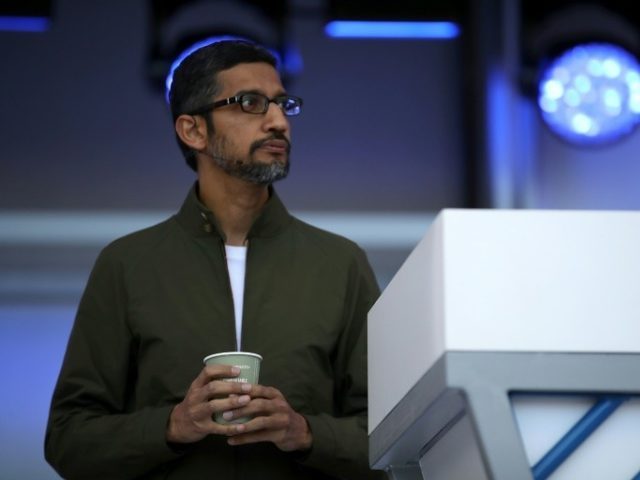
Many have been critical of Google’s plan to launch a censored search engine in China, now a former Facebook executive has called out Google’s CEO for lying about the company’s motives.
Facebook’s former security chief Alex Stamos took to Twitter recently to attack Google CEO Sundar Pichai for his comments defending the company’s decision to move into the China market with its censored search engine known as “Project Dragonfly,” Silicon Beat reports.
In a recent interview with the New York Times, Pichai stated that Google was “committed to serving users in China” and compared Chinese censorship laws to the “right to be forgotten” law in the European Union. Pichai received severe criticism for this comparison, both internally and from those outside of Google.
“Tech companies constantly walk a difficult path between complying with local law and protecting human rights,” Stamos tweeted Thursday. “For Sundar to compare the “right to be forgotten” (which I agree is problematic) with censorship in China is, at best, amoral and mendacious.”
Tech companies constantly walk a difficult path between complying with local law and protecting human rights.
For Sundar to compare the “right to be forgotten” (which I agree is problematic) with censorship in China is, at best, amoral and mendacious. https://t.co/EJNS7VSOKr pic.twitter.com/YAwv3Xyl02
— Alex Stamos (@alexstamos) November 8, 2018
Stamos further added that: “China’s censorship regime is a tool to maintain the absolute control of the party-state and is in no way comparable,” to the right to be forgotten law.
The “right to be forgotten” is a form of censorship that has been abused by many individuals and it’s application extra-territorially should be resisted. However, China’s censorship regime is a tool to maintain the absolute control of the party-state and is in no way comparable.
— Alex Stamos (@alexstamos) November 8, 2018
Google software engineer Colin McMillen tweeted: “It is extremely bad that Sundar appears to either think that RTBF is morally equivalent to government surveillance & censorship, or that he appears to think that nobody will notice this analogy is extremely inaccurate.”
It is extremely bad that Sundar appears to either think that RTBF is morally equivalent to government surveillance & censorship, or that he appears to think that nobody will notice this analogy is extremely inaccurate.
— mcmillen (@mcmillen) November 9, 2018
In another tweet, McMillen stated: “the RTBF regulation was passed by democratically-elected representatives, as opposed to an authoritarian state.” He later added, “It is very unlikely that the EU will ever attempt to trawl through records of past search queries to retroactively look for (and potentially imprison) people who searched for RTBF-covered queries. China, meanwhile, will almost certainly do so.”
During a speech before the Hudson Institute, Vice President Mike Pence China’s theft of U.S. technology, urging Google to take action on the issue. Pence said during the speech that other business leaders are hesitant to enter the Chinese market “if it means turning over their intellectual property or abetting Beijing’s oppression.”
Pence called on Google to listen to these other leaders and that “more must follow suit.” He also called on Google to end the development of its censored Chinese search engine project known as Dragonfly: “For example, Google should immediately end development of the ‘Dragonfly’ app that will strengthen Communist Party censorship and compromise the privacy of Chinese customers,” said Pence.
In a recent interview with Tucker Carlson, Chinese policy expert Dr. Michael Pillsbury stated that Big Tech giant Google is “highly embarrassed” by the recent “Project Dragonfly” leaks which showed the company planning to launch a censored search engine in China. The search giant’s project has been in development since Spring of 2017, and was accelerated in December 2017, following a meeting between company CEO Sundar Pichai and top Chinese government officials. Google engineers have created custom apps named “Maotai” and “Longfei,” which have already been demonstrated for Chinese officials and could be launched within the next six to nine months.
A Google spokesperson told Fox News at the time: “We’ve been investing for many years to help Chinese users, from developing Android, through mobile apps such as Google Translate and Files Go, and our developer tools. But our work on search has been exploratory, and we are not close to launching a search product in China.”
Lucas Nolan is a reporter for Breitbart News covering issues of free speech and online censorship. Follow him on Twitter @LucasNolan or email him at lnolan@breitbart.com
via Breitbart News
Enjoy this article? Read the full version at the authors website: https://www.breitbart.com
